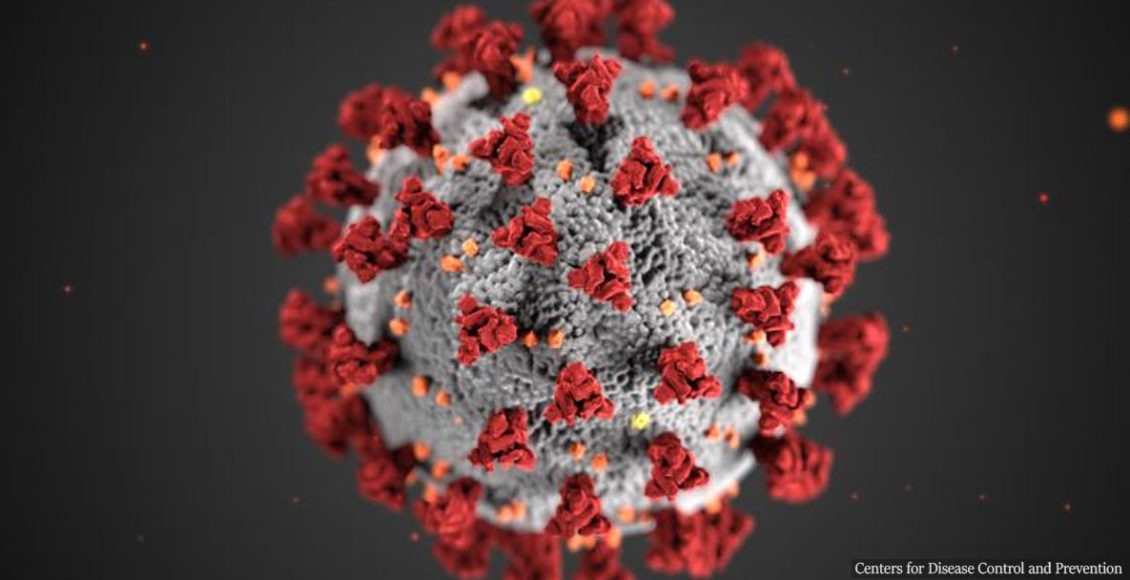Experts warn COVID-19 can lead to severe damages throughout the whole body, not just in the patient’s lungs.
Here’s why coronavirus is not just a respiratory disease, but a virus that hits the whole body.
Coronavirus can cause blood clots.
Blood clots are clumps of blood that have changed from liquid to a gel-like or semisolid state, as Healthline describes. According to Dr. Sean Wengerter, a vascular surgeon in Pomona, New York, it’s an extremely dangerous development that can kill between 20% and 50% of patients.
Along with kidney failure, heart inflammation, and immune complications, doctors treating coronavirus patients are seeing a range of odd and frightening syndromes, including blood clots of all sizes throughout the body.
Dr. Scott Brakenridge, an assistant professor on the acute care surgery team at the University of Florida College of Medicine, told CNN:
“One thing that is both curious and evolving and frustrating is that this disease is manifesting itself in so many different ways.”
Coronavirus can cause multi-system organ failure.
While the novel virus is still considered as respiratory disease, in some patients it can lead to the development of multi-system organ failure.
Indeed, some of the clearest signs of coronavirus infection are classic respiratory symptoms, such as fever and pneumonia. However, the virus seems to target some organs directly. For instance, the unnatural blood clothing is caused by an assault on the lining of the blood vessels. Dr. Sean Wengerter explains:
“It seems like Covid, the virus, is creating a local inflammatory response that’s leading to some of these thrombotic events. This is happening because of the direct action of the virus on the arteries themselves.”
Moreover, other expert teams have reported unusual strokes and pulmonary embolisms (blood clots in the lungs) in younger patients. As Dr. Oren Friedman, who has been treating COVID-19 patients in the ICU at Cedars-Sinai Medical Center in Los Angeles, claims, pathologists are also finding tiny blood clots in the smallest vessels. He insists there’s no debate on the subject:
“The virus seems to affect thrombosis and seems to directly affect your blood vessels. Obviously, every single organ in your body is fed by blood vessels, so if the virus affects your blood vessels, then you can have organ damage. It is a very confusing picture. It’s going to take time to understand.”
Coronavirus can trigger children’s immune systems to overreact.
Concerns have been raised that ‘pediatric multisystem inflammatory syndrome’ in children may be closely related to COVID-19.
According to the International PICU-COVID-19 Collaboration, signs of the syndrome include fever, inflammation, poor function in one or more organs, and other symptoms that resemble shock. Dr. Mary Beth Son, a rheumatologist at Boston Children’s Hospital, clarifies:
“In some cases, children present with shock and some have features of Kawasaki disease, whereas others may present with signs of cytokine storm. In some geographic areas, there has been an uptick in Kawasaki disease cases in children who don’t have shock.”
The Kawasaki disease mainly affects children under the age of five and characterizes with inflammation in the walls of medium-sized arteries. It can also severely damage the heart. Dr. Glenn Budnick, a New Jersey pediatrician, notes:
“Your immune system is overreacting to the virus, and because these are inflammatory diseases, this overreaction can cause a Kawasaki-like disease.”
Doctors warn this inflammation can be caused by an immune system response known as a cytokine storm.
This immune system response may also be the cause of some of the lung damage and unusual blood clotting seen in adult patients. Dr. Jane Newburger, a cardiologist and an expert on Kawasaki disease, suggests:
“It is even possible that the antibodies that children are making to SARS-CoV2 are creating an immune reaction in the body. Nobody knows.”
On the contrary, Dr. Brakenridge claims:
“There is other evidence that the virus really doesn’t generate a strong immune response and actually it is suppressing the immune system.”
However, both theories have been supported by a recent study published in the journal Nature Medicine. Scientists have analyzed samples of immune cells taken from the lungs of nine coronavirus patients. They found unusually high levels of immune cells called macrophages and neutrophils. Besides, they identified immune signaling chemicals called cytokines and chemokines in sicker patients.
Doctors believe that various treatment approaches, such as blood thinners and immune blockers, can help control symptoms.
Coronavirus may cause ‘COVID toes‘.
The term ‘COVID toes’ stands for discoloration in patients’ feet and toes. Some describe it as red or purple swelling. Although this symptom is quite unusual, it appears to be less troubling than the others. Doctors believe it may be caused by the tiny blood clots associated with COVID-19.
Dr. Humberto Choi, a pulmonologist at Cleveland Clinic, explains:
“One pattern of COVID toes that people are reporting is red lesions typically on the soles. It’s possible that this is a skin reaction or caused by a small clog or micro clots in the blood vessels found in the toes.”
However, Dr. Choi states ‘COVID toes’ is not usually associated with any serious symptoms.



